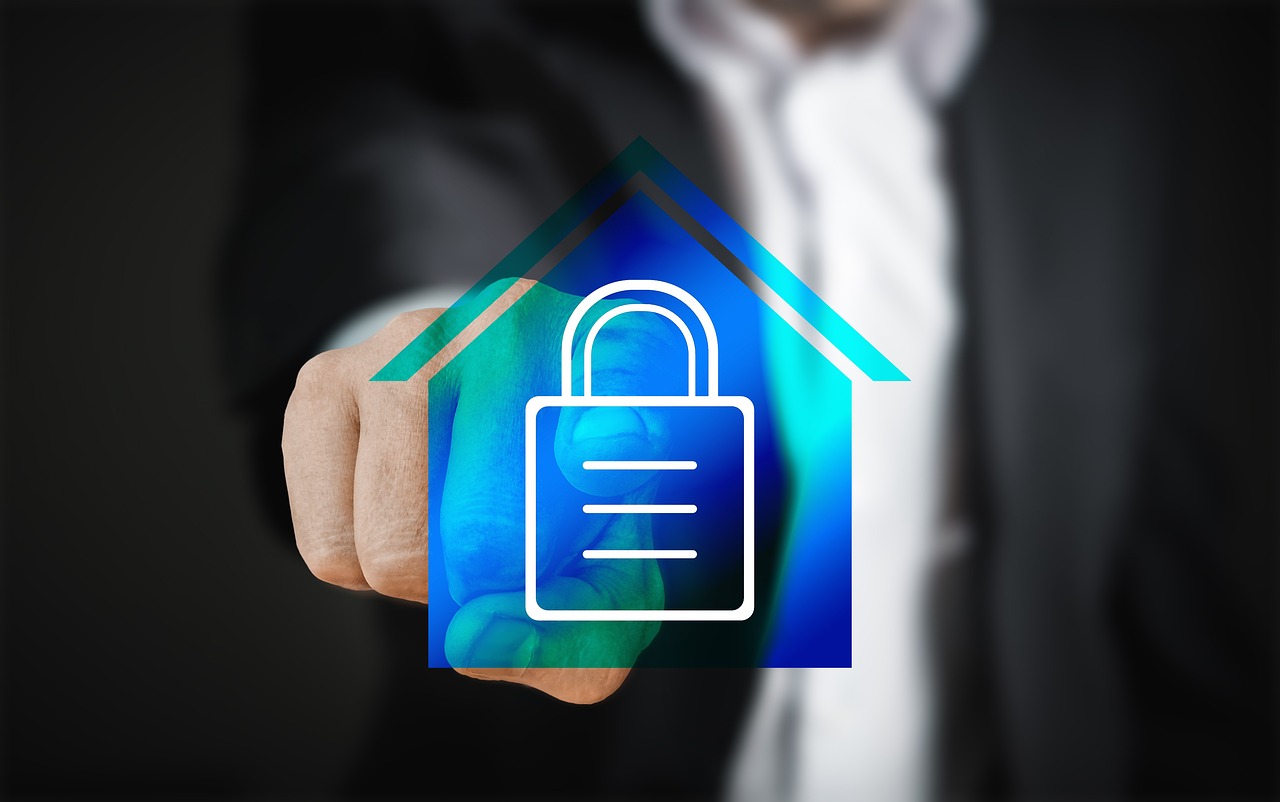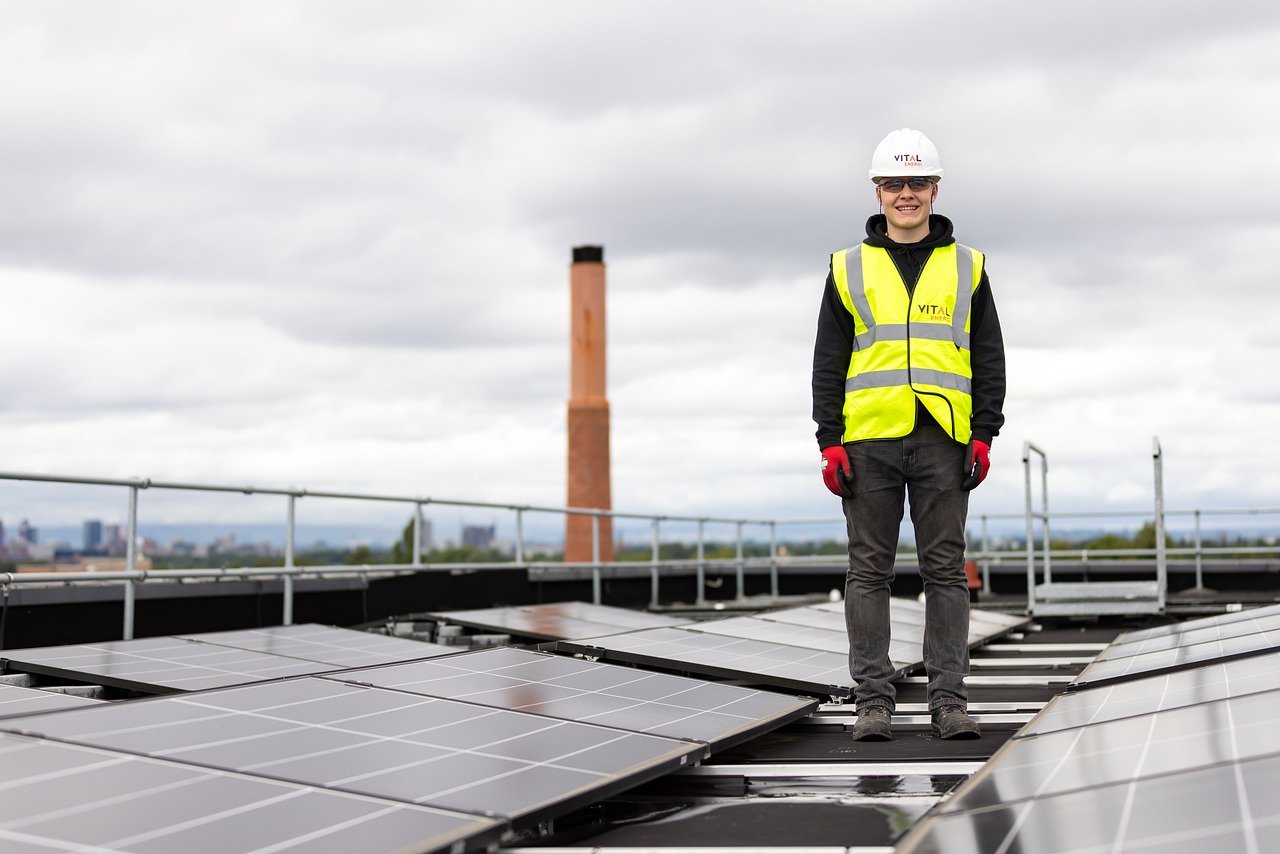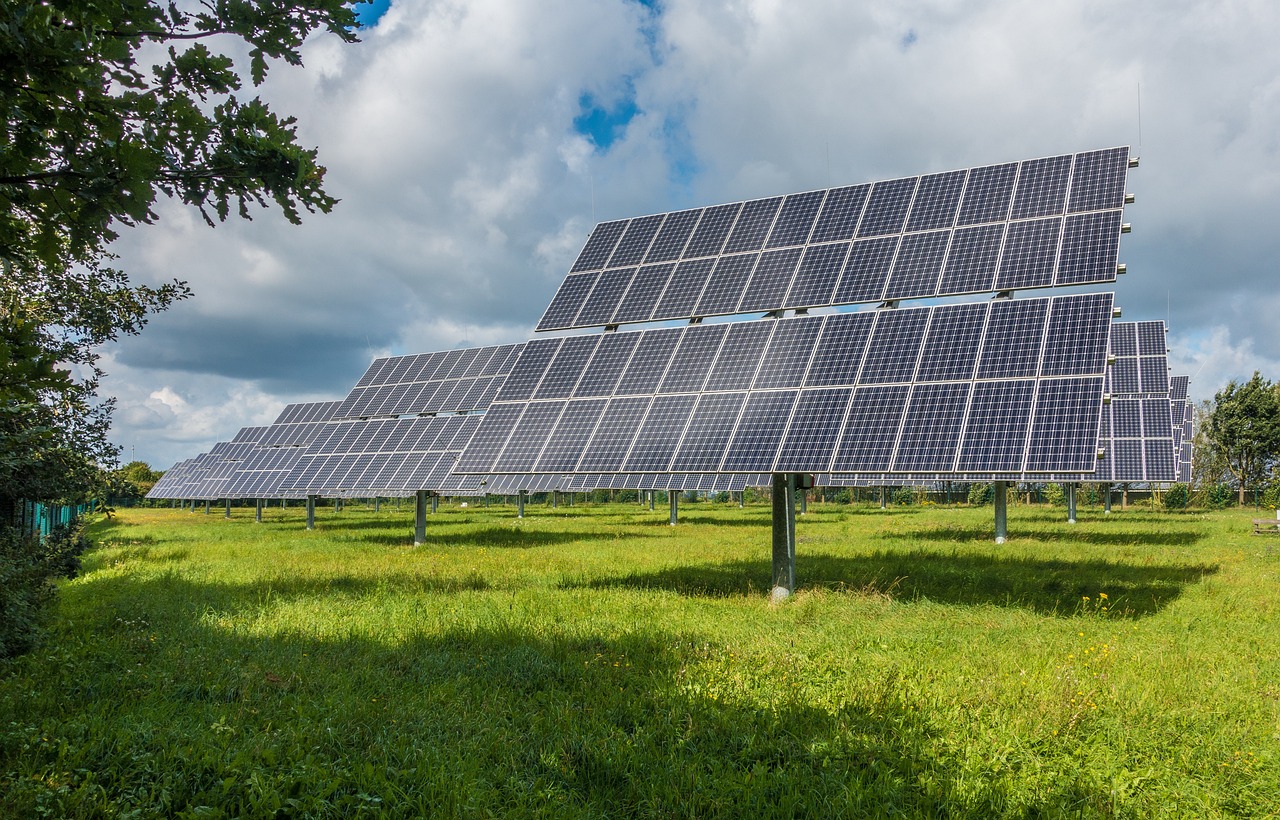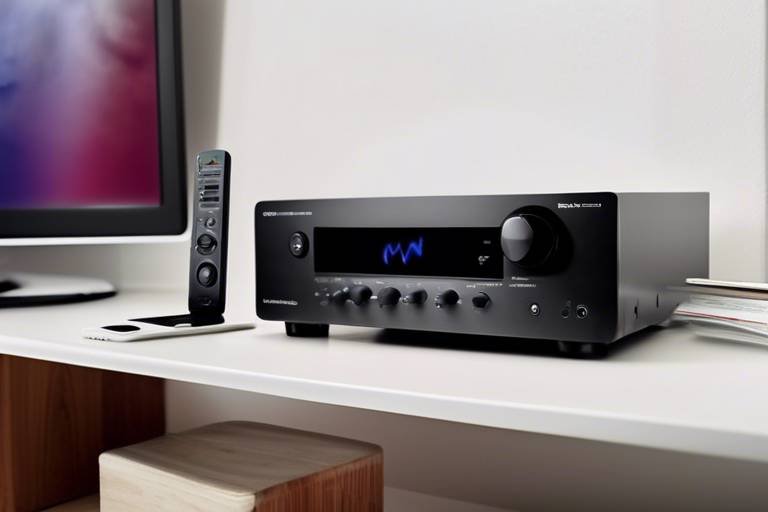How to Make Your Home More Energy Efficient with Tech
Are you looking to transform your home into an energy-efficient oasis using the power of technology? By incorporating innovative solutions and smart devices, you can significantly reduce your energy consumption and lower your utility bills while creating a more sustainable living environment.
One of the key technologies revolutionizing energy efficiency in homes is the use of smart thermostats. These intelligent devices can learn your heating and cooling preferences, adjusting temperatures automatically to optimize energy usage. With the ability to control your thermostat remotely, you can ensure personalized comfort while minimizing energy waste.
Consider harnessing the power of the sun by installing solar panels on your property. By generating your electricity from renewable sources, you can reduce your dependence on the grid and lower your carbon footprint. While the initial investment may seem daunting, the long-term cost savings and environmental benefits make solar panels a worthwhile addition to any energy-efficient home.
When it comes to lighting, upgrading to energy-efficient LED bulbs and smart lighting systems can make a significant impact. By utilizing lighting automation, motion sensors, and programmable schedules, you can illuminate your home efficiently while conserving energy and reducing electricity bills.
Monitoring your home's energy usage in real-time is crucial for identifying areas where you can improve efficiency. Smart energy monitoring devices provide valuable insights into your consumption patterns, helping you make informed decisions about reducing energy waste and optimizing efficiency.
Integrating energy-efficient appliances into your home is another effective way to minimize electricity consumption. From smart refrigerators to washing machines with advanced features, these appliances not only save energy but also streamline your daily routines, making your home more efficient and eco-friendly.
Exploring green building materials and sustainable practices can further enhance your home's energy efficiency. By choosing eco-friendly options for insulation, flooring, roofing, and more, you can create a healthier living space while reducing your environmental impact.
Home automation systems offer a comprehensive solution for optimizing energy usage, enhancing security, and simplifying daily tasks. By incorporating smart technology into your home, you can create a more efficient and convenient living environment while reducing your carbon footprint.
Upgrade your HVAC systems to energy-efficient options like heat pumps and programmable thermostats to improve comfort and reduce energy waste. By exploring zoned heating and other innovative solutions, you can enhance efficiency and sustainability in your home.

Smart Thermostats
Smart thermostats are revolutionizing the way we control the temperature in our homes. These innovative devices go beyond traditional thermostats by offering advanced features that can optimize your home's heating and cooling systems with precision and efficiency. By learning your habits and preferences, smart thermostats can automatically adjust temperatures to ensure comfort while minimizing energy waste.
One of the key benefits of smart thermostats is the ability to control them remotely. Whether you're at work, on vacation, or simply lounging on the couch, you can easily adjust the temperature in your home using a smartphone app or through voice commands with virtual assistants like Amazon Alexa or Google Assistant.
Imagine coming home to a cozy living space without having to keep your heating or cooling running all day. Smart thermostats can help you achieve this by intelligently managing your home's temperature settings based on your daily routine.
Additionally, these devices often come with energy-saving features such as learning algorithms that adapt to your schedule, motion sensors that detect when you're away, and programmable schedules that ensure your home is only using energy when needed.

Solar Panels
Solar panels are a revolutionary technology that allows homeowners to harness the power of the sun and convert it into clean, renewable energy for their homes. By installing solar panels on your property, you can significantly reduce your reliance on traditional energy sources, such as fossil fuels, and lower your carbon footprint. These panels are typically made up of photovoltaic cells that absorb sunlight and convert it into electricity, providing a sustainable and environmentally friendly energy solution for your household.
One of the key benefits of solar panels is their ability to generate electricity independently from the grid. This means that during sunny days, your solar panels can produce more energy than your home consumes, allowing you to sell excess electricity back to the grid through net metering programs. By doing so, you can not only lower your electricity bills but also potentially earn credits or money for the surplus energy you generate.
Moreover, solar panels require minimal maintenance once installed, making them a cost-effective and hassle-free energy solution for homeowners. With proper care and occasional cleaning, solar panels can last for decades, providing a long-term investment in sustainable energy production for your home.
Additionally, the installation of solar panels can increase the overall value of your property. Homes equipped with solar panels are often perceived as more environmentally friendly and energy-efficient, making them more attractive to potential buyers. This can result in a higher resale value for your home and a competitive edge in the real estate market.
When considering solar panels for your home, it's essential to assess your property's sun exposure and energy needs to determine the optimal system size and placement. Consulting with a professional solar installer can help you design a customized solar solution that maximizes energy production and efficiency based on your specific requirements.

Energy-Efficient Lighting
Lighting plays a crucial role in creating a comfortable and inviting atmosphere in your home. By upgrading to energy-efficient lighting solutions, you can not only enhance the aesthetics of your living space but also contribute to reducing your energy consumption and electricity bills. LED bulbs are a popular choice for energy-efficient lighting due to their long lifespan and low energy usage. These bulbs consume significantly less electricity than traditional incandescent bulbs, making them a cost-effective option in the long run. Additionally, smart lighting systems offer advanced features that allow you to control the brightness, color, and scheduling of your lights, optimizing energy usage based on your needs and preferences.
One innovative aspect of energy-efficient lighting is lighting automation. By incorporating motion sensors and programmable schedules into your lighting system, you can ensure that lights are only turned on when needed, reducing unnecessary energy waste. Imagine effortlessly walking into a room and having the lights automatically adjust to the perfect brightness level based on the time of day or your activities. This not only enhances convenience but also promotes energy conservation by avoiding the unnecessary use of lighting.
Moreover, energy-efficient lighting solutions can complement your home decor and create various ambiance settings to suit different occasions. Whether you prefer a bright and vibrant atmosphere for productivity or a soft and warm glow for relaxation, smart lighting systems offer versatile options to customize your lighting experience. With the ability to dim, change colors, and even sync with music or movies, energy-efficient lighting can transform your living space into a dynamic and energy-conscious environment.

Home Energy Monitoring
Discover innovative ways to use technology to reduce energy consumption and lower utility bills in your home. Explore smart devices, energy-efficient appliances, home automation systems, and sustainable practices to create an eco-friendly living space.
When it comes to optimizing your home's energy usage, home energy monitoring devices play a crucial role. These smart devices provide real-time insights into your energy consumption, allowing you to identify areas where you can make improvements to reduce waste and save on utility costs.
By installing a home energy monitoring system, you can track the efficiency of your appliances and electronics, pinpointing which ones are consuming the most energy. This information empowers you to make informed decisions about your usage habits and prioritize energy-saving actions.
Moreover, some advanced monitoring devices offer smart features such as personalized energy-saving tips, alerts for unusual usage patterns, and integration with other smart home devices. With these capabilities, you can proactively manage your energy consumption and work towards a more sustainable lifestyle.
Imagine having a dashboard that displays your energy usage in an easy-to-understand format, showing you exactly where your electricity is going and how you can optimize it. It's like having a personal energy coach guiding you towards a more efficient and cost-effective home.
With the data provided by home energy monitoring systems, you can set goals for reducing your energy consumption, track your progress over time, and celebrate your achievements as you see your utility bills decrease. It's a tangible way to make a positive impact on both the environment and your wallet.

Smart Appliances
Smart appliances are revolutionizing the way we interact with our everyday household devices. These innovative gadgets are designed to make our lives easier while also contributing to energy efficiency. Imagine having a refrigerator that can suggest recipes based on its contents, or a washing machine that adjusts its cycle based on the load size. Smart appliances go beyond mere convenience; they are designed to minimize electricity consumption and water usage, ultimately reducing our environmental impact.
By integrating smart appliances into your home, you can take advantage of advanced features that not only save energy but also streamline your daily routines. For example, smart refrigerators can help you track food expiration dates and suggest grocery lists to minimize waste. Smart washing machines can optimize water usage based on the size of the load, ensuring efficient cleaning while conserving resources. These appliances not only save you time and effort but also contribute to a more sustainable lifestyle.
Moreover, smart appliances often come equipped with connectivity features that allow you to control them remotely via your smartphone or voice commands. Imagine being able to preheat your oven on your way home from work or receive notifications when your laundry cycle is complete. These features not only add a layer of convenience to your daily life but also enable you to make informed decisions about your energy usage.

Green Building Materials
Discover innovative ways to use technology to reduce energy consumption and lower utility bills in your home. Explore smart devices, energy-efficient appliances, home automation systems, and sustainable practices to create an eco-friendly living space.
When it comes to making your home more energy-efficient, the choice of building materials plays a crucial role. Opting for can significantly improve your home's energy efficiency and reduce its environmental impact. These materials are sourced sustainably, produced with minimal energy consumption, and often offer superior insulation properties compared to traditional materials.
By incorporating eco-friendly insulation materials such as cellulose, wool, or recycled denim, you can enhance your home's thermal performance and reduce the need for excessive heating or cooling. These materials not only help in maintaining a comfortable indoor temperature but also contribute to lowering your energy bills in the long run.
Furthermore, choosing energy-efficient roofing materials like metal roofs or cool roofs can reflect sunlight, reducing heat absorption and minimizing the need for air conditioning during hot weather. This simple switch can lead to substantial energy savings and a more comfortable living environment.
When it comes to flooring options, consider materials like bamboo, cork, or reclaimed wood, which are not only sustainable but also durable and aesthetically pleasing. These materials are often produced using environmentally friendly processes and can contribute to a healthier indoor air quality in your home.
Additionally, extend beyond the structural components of your home to include finishes and furnishings. Opt for paints with low volatile organic compounds (VOCs) to reduce indoor air pollution and choose furniture made from recycled or sustainable materials to further enhance the eco-friendliness of your living space.
By incorporating into your home, you can create a more sustainable and energy-efficient living environment while reducing your carbon footprint and promoting a healthier lifestyle for you and your family.

Home Automation Systems
When it comes to creating a more energy-efficient home, play a crucial role in optimizing energy usage, enhancing security, and simplifying daily tasks. By incorporating smart technology into your living space, you can not only reduce your carbon footprint but also enjoy a more efficient and convenient lifestyle.
Imagine being able to control your lighting, thermostat, security cameras, and even kitchen appliances with just a few taps on your smartphone or a simple voice command. Home automation systems offer a seamless way to manage your home's energy consumption and overall functionality, giving you more control and flexibility in how you interact with your living environment.
With the ability to create custom schedules for lighting and heating, you can ensure that energy is not wasted when you're away from home or asleep. Smart sensors can detect when rooms are unoccupied and adjust settings accordingly, contributing to significant energy savings over time.
Moreover, home automation systems can enhance the security of your home by allowing you to monitor and control access remotely. From smart door locks to surveillance cameras, you can keep an eye on your property and receive instant alerts in case of any unusual activity, providing you with peace of mind and a sense of security.
Integrating home automation systems into your daily life can transform the way you interact with your home, making tasks more efficient and enjoyable. Whether it's setting the perfect ambiance with smart lighting or automating your morning routine with connected appliances, the possibilities are endless when it comes to creating a smart and energy-efficient living space.

Energy-Efficient HVAC Systems
When it comes to creating a more energy-efficient home, upgrading to energy-efficient HVAC systems can make a significant impact. These systems, which encompass heating, ventilation, and air conditioning components, play a crucial role in maintaining comfort levels while minimizing energy waste. By investing in energy-efficient HVAC systems, homeowners can not only improve their living environment but also reduce their carbon footprint and lower utility bills.
One key aspect of energy-efficient HVAC systems is the use of heat pumps. Heat pumps are highly efficient devices that can both heat and cool a home by transferring heat between the indoors and outdoors. By harnessing the natural heat present in the air or ground, heat pumps provide a sustainable heating and cooling solution that consumes less energy compared to traditional systems.
Zoned heating is another feature that can enhance the efficiency of HVAC systems. With zoned heating, homeowners can divide their living spaces into separate zones that can be heated or cooled independently. This targeted approach allows for more precise temperature control, ensuring that energy is not wasted on heating or cooling unoccupied areas of the home.
Additionally, programmable thermostats are essential components of energy-efficient HVAC systems. These smart devices enable homeowners to set customized heating and cooling schedules based on their daily routines. By adjusting temperatures automatically according to preset preferences, programmable thermostats help optimize energy usage and reduce unnecessary heating or cooling when no one is home.
When considering upgrading to energy-efficient HVAC systems, it's important to consult with professionals who can assess your home's specific needs and recommend the most suitable options. By investing in these advanced systems, homeowners can enjoy improved comfort, lower energy bills, and a more sustainable living environment for years to come.
Frequently Asked Questions
- What are the benefits of using smart thermostats?
Smart thermostats can optimize your home's heating and cooling systems, saving energy by adjusting temperatures based on your habits and preferences. They allow you to control your thermostat remotely and enjoy personalized comfort while reducing energy waste.
- How can solar panels help reduce energy consumption?
Installing solar panels on your property allows you to harness renewable energy from the sun, generate your electricity, reduce reliance on the grid, and lower your carbon footprint. This leads to long-term cost savings and environmental benefits.
- What advantages do energy-efficient lighting systems offer?
Energy-efficient lighting, such as LED bulbs and smart lighting systems, can illuminate your home efficiently. By using lighting automation, motion sensors, and programmable schedules, you can enhance your living environment while conserving energy and reducing electricity bills.
- How do home energy monitoring devices help in optimizing energy usage?
Smart monitoring devices allow you to track your energy usage in real-time, identify energy-intensive appliances, monitor trends, and receive insights to make informed decisions about reducing consumption and optimizing efficiency in your home.
- What are the benefits of integrating smart appliances into a home?
Integrating energy-efficient appliances into your home helps minimize electricity consumption and water usage. Smart refrigerators, washing machines, and dishwashers offer advanced features to save energy and streamline daily routines, contributing to a more sustainable lifestyle.
- How can green building materials improve energy efficiency?
Green building materials and practices improve a home's energy efficiency and environmental impact. Eco-friendly options for insulation, flooring, roofing, and more create a healthier and greener living space, reducing energy consumption and promoting sustainability.
- What advantages do home automation systems offer in terms of energy efficiency?
Home automation systems optimize energy usage, enhance security, and simplify daily tasks. By using smart technology, you can create a more efficient and convenient living environment while reducing your carbon footprint and overall energy consumption.
- How do energy-efficient HVAC systems contribute to reducing energy waste?
Energy-efficient heating, ventilation, and air conditioning (HVAC) systems improve comfort and reduce energy waste. Options like heat pumps, zoned heating, and programmable thermostats enhance efficiency and sustainability in a home, leading to lower energy bills and environmental benefits.



















